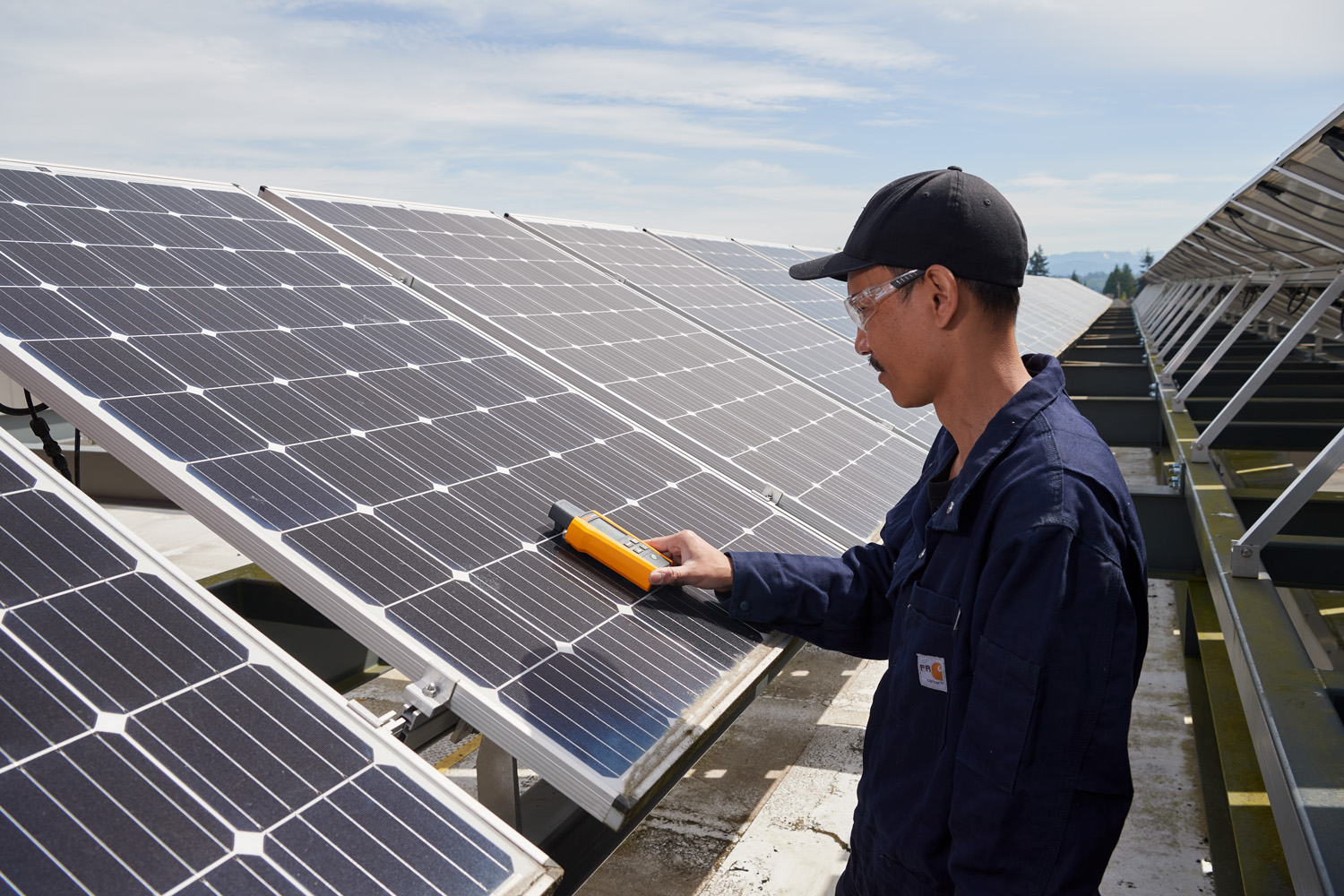Charting a New Energy Course: Retooling the Oil & Gas workforce for the solar energy revolution
The dawn of the 2020s brought a seismic shift in the oil and gas industry, precipitated by an
unprecedented global pandemic. As lockdown restrictions took hold, a dramatic reduction in global travel led to a decline in gasoline, diesel, and jet fuel demand. Consequently, U.S. oil companies faced financial instability, slashing nearly 107,000 jobs between March and August of 2020.

This job market contraction continued, with 2022 reporting 700,000 fewer jobs in the oil and gas industry than in the preceding six-year period. Meanwhile, the introduction of the U.S. Inflation Reduction Act (IRA) stimulated a surge in climate-focused jobs, creating 100,000 positions within a mere six months. The rapidly burgeoning solar sector (driven by the Biden Administration’s ambitious target of deriving 100 percent of U.S. electricity from carbon and pollution-free sources by 2035) is gearing up to expand its workforce to one million people. This expected job growth is an impressive leap from the 255,037 solar workers reported in 2021. A vital ingredient for this workforce expansion is the incorporation of oil and gas professionals, who possess indispensable industry knowledge and skills.
Harnessing the power of the energy workforce
As fossil fuels begin their descent into the twilight, the renewable energy market is poised to tap into the skills of seasoned energy workers. This shifting dynamic is not lost on the energy workforce; in a recent survey, over half (56 percent) of oil and gas professionals expressed interest in exploring opportunities in the renewables sector — a significant increase from the prior year's 38.8 percent. During my six years of teaching solar and energy storage classes at Solar Energy International, almost every class had at least a few students who worked in oil and gas, and were interested in transitioning into the renewable energy industry.
The inherent skillset of the fossil fuel energy workforce could prove to be a valuable asset in this transition. The project management, engineering, construction, finance, and operational expertise that define oil and gas professionals are equally crucial for success in the solar industry. Prior experience in power production facilities instills a strong safety ethos, which is an asset in high-voltage environments. In light of this, renewable companies are launching workforce training initiatives, supplying specialized tools, and offering safety education to facilitate a smooth transition for oil and gas workers.

Overcoming barriers and facilitating transition
Despite the promising prospects, certain hurdles could impede oil and gas professionals from transitioning into renewables. Addressing these challenges, and providing the necessary resources will be crucial in retooling the workforce.
Investment in comprehensive training programs is paramount in shaping the future renewable energy workforce. Organizations like the North American Board of Certified Energy Practitioners (NABCEP), play a critical role in this endeavor by requiring solar technicians to undergo extensive training and education before they can obtain NABCEP certification. Assurance in the proficiency of NABCEP-certified professionals lends renewable energy companies the confidence to innovate and push boundaries.
Equally important is the provision of specialized tools designed for clean energy production sites. The toolkit of a solar technician is markedly different from that of an oil and gas worker. These innovative tools are engineered to optimize the performance of renewable energy sites, manage energy intermittency, and accomplish other specialized tasks crucial to successfully implementing clean energy projects.
Harnessing the power of transition
The renewable energy revolution presents a unique opportunity for the oil and gas workforce —the key is for the industry to recognize their value as partners, while encouraging their drive to conquer any learning curves. By harnessing their transferable skills, overcoming barriers, and providing the necessary training and tools, we can retool our energy workforce for the next era. The alignment of this skilled labor force with the surging solar industry could prove instrumental in realizing our shared vision of a sustainable energy future.
Will White is a Solar Subject Matter Expert | Solar Application Specialist at Fluke, which manufactures, distributes, and services electronic test tools and software.
Fluke Solar | www.fluke.com
Author: Will White
Volume: 2023 July/August








.png?r=8482)



